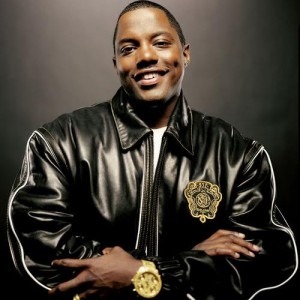
Hip-hop Icon slash Neo-Pilgrim Reaches 39 Today
By Rapstation Editor for Rapstation.com
2 out of 3 Hip-hop fans will hear the name Ma$e and remember the several hits he offered as the Florida-born, Harlem-raised rapper. On the other hand, many others also respect his identity as simply Mason Durell Betha, the talented rapper-turned-pastor and motivational speaker.
August 27 (tracing back to 1977), Betha was born in Jacksonville, Florida, then migrating to Harlem when he was three; His ties with certain notorious crowds, however, brought him back to his hometown at age 13. His journey into the realm of Hip-hop began when he returned to New York as a teenage Betha began dabbling into rap as a simple hobby.
On the contrary, his partial pursuit led him to a certain Cudda Love (manager of the iconic Biggie Smalls), who then led Betha down to Atlanta, where he met a certain Sean “P Diddy” Combs, which then led the young rapper into the growing Hip-hop movement, rapping under Bad Boy Entertainment.
Harlem World, Ma$e’s first project debuted with outstanding recognition. The solo LP landed Billboard’s #1 spot in Pop and R&B charts, selling well over 270,000 copies nationwide. Under two years after, Ma$e released Double Up, climbing up to the chart’s #5 title and flaunting at 107,000 copies sold in its first week.
Betha’s restless nature showed signs in his second effort where the rapper versed in the record’s last track: “If I could do it all again, I’d do it all for Christ”. On May 4th 1999, Betha declared retirement, transition stages and studios into pulpits and sermons as he pursued urban ministry.
The switch, however, proved troublesome as Betha became an object of much criticism and accusation from pastors and other partakers of the faith. In 2004, the Hip-hop world witnessed Ma$e’s returning album Welcome Back, marking the end of his 5-year hiatus.
In the following years, Betha led a decorated campaign through the music scene, releasing several albums and singles, collaborating with a myriad of iconic artists, performing shows, while still striving to send a positive message.
“I thought I could more than rap,” mentioned Betha in an interview with TBN, “I see different artists making clothing lines and people respected it… Rap has always been about using your talents for doing more”.
It’s no doubt that the Hip-hop rapper/modern-day pilgrim surfaces sparks opposing opinions from different areas, but one simply cannot dismiss the impact Betha has accomplished. Hit-singles, hit-albums, great performances on both the stage and pulpit—put those all aside and what we see is an progressive individual, striving to do good in wherever his passions lead him.
And thankfully, Hip-hop music happens to be one of them—many thanks and blessings go out to you Ma$e!
By Jods Arboleda for RAPstation.com